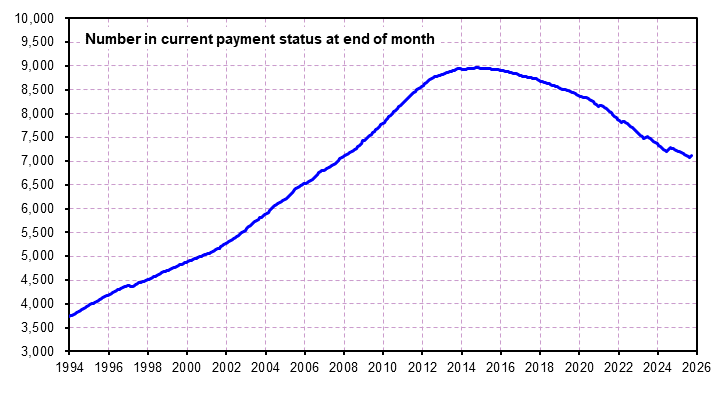From Social Security's own blog:
We made some difficult decisions because of these latest budget limits. During the past year, we began a hiring freeze that will reduce our staff to the lowest level since FY 2013. We use a lot less overtime now, which affects our ability to reduce critical backlogs. Over a million people are waiting for a hearing to see if they are eligible for disability benefits.
Today, we are taking another cost-saving step. We will mail fewer paper Social Security Statements. Paper Statements will only be sent to people age 60 and over, who are not getting benefits and don’t have a my Social Security account. This will bring down the costs of processing and mailing paper Statements by $11.3 million in FY 2017.This change is already drawing attention from Michael Hiltzik at the L.A. Times, Phillip Moeller at PBS and Mary Beth Franklin at Investment News.
